- About Us
- Columns
- Letters
- Cartoons
- The Udder Limits
- Archives
- Ezy Reading Archive
- 2024 Cud Archives
- 2023 Cud Archives
- 2022 Cud Archives
- 2021 Cud Archives
- 2020 Cud Archives
- 2015-2019
- 2010-2014
- 2004-2009
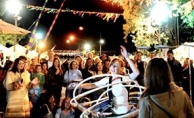 |
Expressing Folk Tolerance |
Experience of other cultures is an excellent way to engender acceptance of people who differ from us. Access to exotic food, music, language, dress, dance and social customs provides opportunities for appreciation of the humanity common to all people, whatever their origins. Such experience can be gained through travel or by attendance at multicultural festivals such as the 45th annual National Folk Festival held in Canberra over the Easter Weekend.
Australia’s national folk music movement has three broad influences.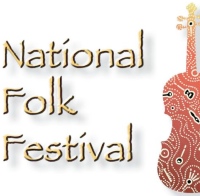 It acknowledges the Indigenous peoples and their unique relationship with the land. It celebrates the best traditions of the English speaking pioneers of the nineteenth and early twentieth centuries. It welcomes the enrichment brought by more recent arrivals from across the globe. The National Festival features dozens of performers and thousands of participants and the 2011 event had a typical array of talent.
It acknowledges the Indigenous peoples and their unique relationship with the land. It celebrates the best traditions of the English speaking pioneers of the nineteenth and early twentieth centuries. It welcomes the enrichment brought by more recent arrivals from across the globe. The National Festival features dozens of performers and thousands of participants and the 2011 event had a typical array of talent.
The festival opened with a welcome to country by Ngunnawal elder Jeanette Phillips. Strong Indigenous themes emerged from the Song Company’s collaboration with William Barton, master of the didgeridoo. Goanna front man Shane Howard in a ‘Live @ the Lounge’ interview for the National Library, recalled how he tried to empty his music of popular overseas influences in order to listen to what this land is telling him so that he can attempt to express the quintessential Australian spirit.
The settler experience was paramount in the Bush Poets’ breakfasts, and in performances by the Bushwhackers, the Larrikins, Danny Spooner, the Fagans and Phyl Lobyl and friends.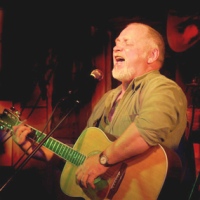 There were themed presentations on the legends of Ned Kelly and Eureka, and radical sentiments were foremost in the Union Concert and in the Alistair Hulett memorial event. Australia’s debt to the Celtic influence was obvious in performances by Irish visitors Andy Irvine and the Kellys and by Brisbane band Sunas. Participants joined in Scottish and Irish dance workshops and a shuttle bus ran to the Museum of Australia for the ‘Not Just Ned’ exhibition on Irish influence.
There were themed presentations on the legends of Ned Kelly and Eureka, and radical sentiments were foremost in the Union Concert and in the Alistair Hulett memorial event. Australia’s debt to the Celtic influence was obvious in performances by Irish visitors Andy Irvine and the Kellys and by Brisbane band Sunas. Participants joined in Scottish and Irish dance workshops and a shuttle bus ran to the Museum of Australia for the ‘Not Just Ned’ exhibition on Irish influence.
Iconoclasm was a feature of some newer works by singers and songwriters. The Shiny Bum Singers and the Enda Kenny Band showed why they are among the country’s best satirists. The Spooky Men’s Chorale, gently self-deprecating about masculinity, added ‘Big’ and ‘The Thing’ to their expanding repertoire. Veterans Eric Bogle and John Munro were hugely popular, and lived up to their reputation for moving audiences from laughter to tears. Bogle’s lyrics, which he says emerge naturally from the experiences of his subjects, celebrate the heroic in apparently ordinary events. He wrote ‘Ashes’ as a tribute to the people affected by Victoria’s Black Saturday bushfires after performing in the worst affected areas a few weeks later.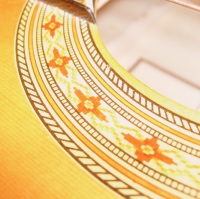
International artists including Ricardo Tesi and Banditalia, the Peter Rowan Bluegrass Band and Canada’s Good Lovelies packed out the biggest venues in multiple performances. While these groups had diverse styles, their virtuosity quickly overcame any preconceptions that they might appeal only to specialist audiences.
Increasingly, Australian performers are drawing on cosmopolitan influences in their work. Kavisha Mazzella, of Italian and Burmese descent, was made a Member of the Order of Australia this year for her work with Melbourne’s Italian community, Indigenous teachers and refugee groups. The costumes worn by ethnic dance groups had their origins in Denmark, Estonia, France, Peru and the Middle East, as well as in Gypsy cultures. This year, the Easter holiday included Anzac Day and the program included an Anzac tribute concert and a Concert for peace by Oud Vibrations, which performed war laments in Turkish.
There is generally an excellent spirit among festival goers. The streets were sites for impromptu performances by Morris dancers, puppeteers, jugglers and buskers. Crowds enjoyed these while waiting in orderly queues for food or entry to venues.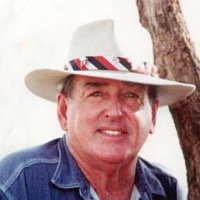 There are many opportunities for participation with a program of events for children, a youth fringe and sessions for singers, dancers and instrumentalists of all standards. A feature of the festival is a heavy emphasis on effective recycling of waste.
There are many opportunities for participation with a program of events for children, a youth fringe and sessions for singers, dancers and instrumentalists of all standards. A feature of the festival is a heavy emphasis on effective recycling of waste.
In concerts, both Ted Egan and Margret Roadknight sang Egan’s tribute to migrant women,
‘She’s here, she’s here, she’s living over here
She’s not an alien, she’s Australian
And she’s a pioneer’.
In stark contrast to many short-sighted Australian opinion makers who compete to vilify asylum seekers as beggars and drains on the public purse, this song celebrates the contribution of those who have made Australia home, enriching our economy and our culture. It is tempting to wish that the National Folk Festival could run all year. But it is better that participants, their spirits refreshed over Easter, spread themes of cultural enrichment and inclusiveness in the general community. Australia is in urgent need of such attitudes.
Tony Smith a former academic, has written on matters folk for the Australian Review of Public Affairs, the Journal of Australian Studies Review of Books and Overland.
